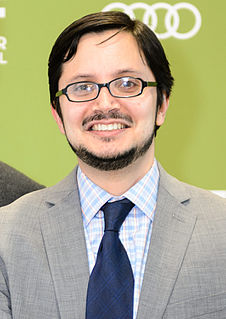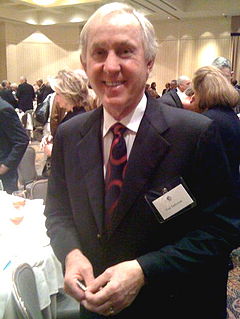A Quote by Glenn Greenwald
Embedded in 'The New York Times' institutional perspective and reporting methodologies are all sorts of quite debatable and subjective political and cultural assumptions about the world. And with some noble exceptions, 'The Times,' by design or otherwise, has long served the interests of the same set of elite and powerful factions.
Related Quotes
Each morning we sat reading our copy of the New York Times, the Washington Post or the Los Angeles Times and ruminated on their prophecies of doom and quagmire. Then we looked up to see, on television, correspondents actually embedded with our troops, reporting quick advances, one- sided firefights, melting opposition and, finally, welcoming crowds.
The New York Times will tell you what is going on in Afghanistan or the Horn of Africa. But it is no exaggeration that The New York Times has more people in India than they have in Brooklyn. Brooklyn is a borough of two million people. They're not a Bloomingdale's people, not trendy, sophisticated, the quiche and Volvo set. The New York Times does not serve those people.
Recently it's become much to my surprise, something that does happen. For example, I used to get almost all of my stories, and it's probably still true, from newspapers. Primarily from The New York Times. No one ever really thinks of The New York Times as a tabloid newspaper and it isn't a tabloid newspaper. But there is a tabloid newspaper within The New York Times very, very often.
If you look at the New York Times, it says X; if you look at the Washington Post, it says the same thing. And if you turn on any television newscast it's the same thing you already heard, that's research. And that's one of the ways it's done. Authority ends up being imputed simply because of volume. I mean, all of these different news organizations reporting the exact same thing.
So much of the language that surrounds us - from things like economics, management theory, and the algorithms built into computer systems - appears to be objective and neutral. But in fact, it is loaded with powerful, and very debatable, political assumptions about how society should work and what human beings are really like.

































